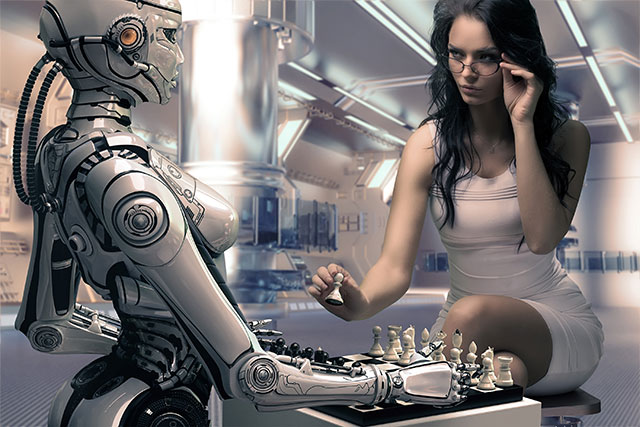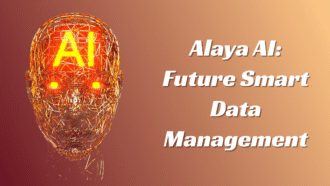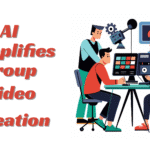What Jobs are Threatened by Artificial Intelligence?
About Artificial Intelligence (AI)?
Artificial Intelligence combines technologies and techniques to mimic human behaviour and the logical functioning of his thoughts and brain. Still not very important in 2015, with a market of two hundred million dollars, it is expected to be close to ninety billion dollars by 2025 on a global scale. Ultimately, this technology should be found in all aspects of our daily lives, both in our private and professional lives.
According to various studies, the job market is expected to undergo more or less significant changes in the coming years.
How Artificial Intelligence is Fundamentally Transforming Digital Professions
To understand these transformations, we must examine the intrinsic functioning of Artificial Intelligence and the digital sector.
The latter is governed by an internal functioning based on binary representations. In other words, the sequences of 0 and 1 are the very essence of how digital technologies work. Artificial intelligence is a technique created on the same binary principle. Still, we have added the reflection and the ability to make choices using raw data, which is usually unique to humans.
It is fundamental to understand that Artificial Intelligence then finds itself like a fish in water in any digital system since these two entities have the same internal functioning.
These new techniques have profoundly modified all IT professions and digital technology in general. Therefore, the way electronic devices we use every day will be completely changed. We can cite, for example, computers, smartphones, or even video game consoles.
In the short term, all the connected objects that have recently emerged will also be equipped with artificial intelligence. We then think of watches or connected clocks, which will be managed remotely by Artificial Intelligence, having a form of intellectual and decision-making autonomy in a short time.
Voice assistants are also Artificial Intelligence that remotely controls all connected and electronic objects in your home. They appeared four years ago in the United States and landed a few months ago in France. On a simple voice request from you, it can manage the opening and closing of the house’s shutters, the switching on of the lights, the interior temperature, etc.
AI must be digital and designed in binary code to manage all of these everyday objects and gestures. AI made up of those same two digits, has extraordinary information processing speed and can simultaneously deal with many topics and problems. It can also immediately find what is unusual in a process and decide how to resolve it appropriately.
Digital professionals, therefore, tend to become ultra-versatile. Concentrated mainly on computer objects five years ago, computer technicians or programmers are now looking at market research and want to know more about the habits of the inhabitants of any country.
The professions affected by technological developments related to Artificial Intelligence
According to studies carried out over the past two years, Artificial Intelligence should be integrated into nearly 40% to 70% of businesses by 2025. In other words, almost all of our companies will be transformed. Some sector specialists even speak of a “new Industrial Revolution.”
This development of artificial intelligence involves robotization and digital automation in most industrial trades. A large part of the jobs in assembly line work has already disappeared with the installation, little by little, of robots managed by Artificial Intelligence. These robots can manage several stations in industrial chains simultaneously, do not rest and do not need to eat. This results in lower production costs and an increased increase in production. Some experts fear a scarcity of low-skilled jobs in all countries.
Long-confined to repetitive actions such as those in industry, artificial intelligence will be found in a few years in any position requiring a certain logic of reflection and operation. The profession of trader, for example, with its probability calculations and ubiquitous figures, is likely to evolve with the arrival of robots specializing in managing and optimising digital models. The finance professions, in general, will also be disrupted by Artificial Intelligence. Careers in the banking sector will, therefore, soon experience unprecedented changes.
The notarial and legal sectors may also have to adapt in the future. AI can record all the laws of one or more nations. Thinking about a given problem is straightforward, as it involves studying each law and extracting the most suitable solution.
The healthcare professions are also required to adapt. Some robots can already memorize how a human body is made, watch the radio and perceive the patient’s problem in record time and with a prison imp, which is possible for a human being.
Most software and development, like web (Kissanime) development, is already occupied with AI and reusability, which will also affect the professional.
Therefore, the professions that are likely to change or have to adapt in the years to come are perhaps those that appeal to the meaning of deduction, which includes repeated gestures, or which have a numerical or administrative logic.
Therefore, the jobs that should undergo this “revolution” least are those that require constant adaptation to sudden and unforeseen changes. For example, those who require analyzing the environment and its permanent changes to learn independently and thus constantly adapt one’s behaviour.

















